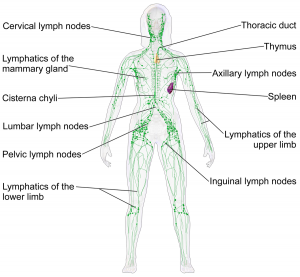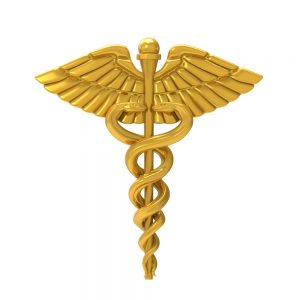Video Link: https://vimeo.com/293636636
Video Download: Facilitating The Health Of The Lymphatic System How To Keep The Lymph System Healthy
Video Stream: Facilitating The Health Of The Lymphatic System How To Keep The Lymph System Healthy
The Lymph System is one of the many systems of the human body in delicate balance with one another to keep our bodies healthy and fully-functional.
Lymphatic Congestion and other conditions that impair the function of the Lymphatic System are incredibly detrimental to human health and wellness. They can quickly lead to a life-threatening situation for you or someone that you love.
 The purpose of the Lymphatic System is to destroy cells and foreign invaders (viruses, bacteria, etc.), which prevent the body from functioning as it should.
The purpose of the Lymphatic System is to destroy cells and foreign invaders (viruses, bacteria, etc.), which prevent the body from functioning as it should.
When the Lymph System breaks down, this causes toxins and other dangerous factions to run amok within the human body.
Most people are reasonably aware of the importance of Cardiovascular, Pulmonary, and Digestive health, but there is less awareness regarding the equally important Lymphatic System.
It's essential to know how to maintain healthy lymphatic function, as well as when to see a professional to obtain medical treatment for Lymphatic Issues.
Today, the Lymphatic System is under more stress than at any point in the modern era. The human body is exposed to more chemicals than ever, and the Lymph System is responsible for eliminating these threats from the body to preserve the integrity of the closed human system.
We absorb these chemicals through the air we breathe, the foods and drinks that we consume, and we absorb them through the skin.
Lymphatic System Health Depends on Maintaining Balance
Like all organ systems in the human body, the Lymphatic System is designed to maintain a precise physiological balance for its host, and undue strain and other factors prevent our systems from functioning correctly.
When the Lymph System is under too much pressure, this not only impacts the Lymphatic System, but all other systems in the body, and can eventually lead to severe illness or death.
The Lymphatic System is among the most sensitive of the human body. The Cardiovascular System centers around the heart, which circulates blood through the body  continuously.
continuously.
The digestive system is a one-directional system that uses muscle contractions and gravity to propel food from start to finish.
The Lymph System is circulatory, much like the cardiovascular system, but does not have its own circulatory organ, like the heart.
This means that the Lymph System is at higher risk of experiencing clogs and diminished function than the cardiovascular system.
What Causes Lymphatic Distress?
The Lymph System experiences blockages primarily as a result of congestion and physical damage. Injury, radiation treatment, and scar tissue can all prevent the Lymph System from doing its job at an appropriate level of efficiency.
Lymphatic Congestion, on the other hand, causes swollen lymph nodes and is the result of an overworked Lymph System.
Medical issues, such as cancer and infection, can overwork the Lymph Nodes, preventing the Lymph Vessels from transporting waste to the spleen. If this congestion is severe enough, it can even become life-threatening.
When you visit the doctor with any illness, or even for a routine check-up, it's likely that he or she will put his hand up to your throat and massage your lymph nodes.
This is the initial assessment of Lymphatic Distress and Congestion. Mild swelling isn't necessarily a significant issue, because the Lymph Nodes will grow as a result of any illness.
The swelling of the Lymph Nodes is the result of the increased circulation of white blood cells which attack the infection.
On the other hand, long-term swelling or intense swelling can be a sign of significant health issues that need to be dealt with, or an infection that the body cannot adequately handle on its own.
Lymphatic Issues Can be Hard to Recognize
It's a shame that people aren't more aware of signs of Lymphatic Health and Distress, because Lymph System malfunctions can and should be caught quickly to preserve health and wellness.
because Lymph System malfunctions can and should be caught quickly to preserve health and wellness.
What can be easily treated today can require hospitalization and/or significant treatment tomorrow. The following are some symptoms that you should be aware of that are associated with Lymphatic Distress:
- Swelling of the Ankles, Hands, and Feet
- Swollen Lymph Nodes or Tonsils
- Sore Throat
- Bloating
- Ongoing Illnesses Associated with Immune Suppression
- Chronic Fatigue
- Unexplained Weight Gain
- Stomach Issues
- Cognitive Fogginess
- Skin Blotches, Acne, Dry Skin, and Itchiness
Lymphatic Distress is a precursor for more severe complications that result from not seeking treatment for Lymphatic Congestion or other issues that suppress Lymphatic Function.
A few dangerous conditions associated with the Lymph System are Lymphangiomatosis, Castleman Disease, and Lymphoma.
Preserving the Health of the Lymphatic System
As you can tell, the health of the Lymphatic System is vitally important to your overall wellness. There are lots of mindful steps that you can take to keep your Lymph System running smoothly.
One of the best things that you can do is just to stay active. Engaging in any form of exercise, whether it be yard work, running, swimming, biking, or anything else you enjoy, helps your Lymph System preserve healthy circulation.
In particular, exercises that encourage verticle motion are the most beneficial to Lymphatic Circulation.
A few examples of such exercises are jumping jacks, basketball, and jumping rope. Lookup any activity like these that belong to a class known as Rebounding or Bouncing.
These exercises are particularly beneficial, because the Lymphatic System flows from your extremities to the lymph nodes in your neck, from down to up.
Merely engaging in deep breathing exercises can do a lot of good for your Lymphatic System. Deep breathing puts more pressure on your organs and encourages the body to experience total circulation.
The primary way in which deep breathing confers these benefits is via pressure on the thoracic duct by the lungs, which helps Lymph Fluid pass more readily back into the cardiovascular system.
 Yoga is highly effective at promoting Lymphatic Health.
Yoga is highly effective at promoting Lymphatic Health.
Yoga both encourages positions that inspire Lymph Fluid to flow, and the positions manipulate internal organs in such a way that they expel Lymph Fluid more effectively, releasing built-up toxins and encouraging their transport to the spleen and boosting the function of the kidneys and liver.
Hydration is key to maintaining one's health, and this remains true for the Lymph System.
When the body doesn't have enough water for circulation and filtration, this significantly impairs the ability of the Lymph System and the Kidneys to properly function in particular, which puts you at increased risk of illness and infection because your body can't get rid of toxins as well as it should.
Massage and Dry Skin Brushing can both benefit Lymphatic Function. Any mechanism which puts pressure on the skin and muscles and encourages fluid movement from extremities to the core helps Lymph Fluid reach its destination.
Furthermore, inversion is a powerful tool, as well. Resting in a way that elevates your arms and legs reduces the load on the Lymphatic System, helping Lymph Fluid get to its destination more quickly and efficiently.
Reference
From sewer to saviour - targeting the lymphatic system to promote drug exposure and activity.
Contact Us For A Fast And Professional Response

- Sermorelin — HGH Injections Versus Sermorelin and Testosterone Therapy Programs [Last Updated On: February 20th, 2025] [Originally Added On: September 20th, 2020]
- GH-RH Antagonist May Be Effective Breast Cancer Treatment [Last Updated On: March 27th, 2025] [Originally Added On: September 21st, 2020]
- GH-RH Therapy Benefits Cognitive Health of Elderly Patients [Last Updated On: April 6th, 2025] [Originally Added On: September 23rd, 2020]
- Sermorelin with GHRP-6 - Hormone Doctor San Diego [Last Updated On: February 18th, 2025] [Originally Added On: October 28th, 2020]
- Injectable Sermorelin with GHRP-6 for Men [Last Updated On: April 26th, 2025] [Originally Added On: November 2nd, 2020]
- How Does Sermorelin Work? [Last Updated On: February 7th, 2025] [Originally Added On: November 22nd, 2020]
- Sermorelin Acetate Therapy Increases HGH [Last Updated On: February 20th, 2025] [Originally Added On: November 25th, 2020]
- Sermorelin for Women [Last Updated On: February 15th, 2025] [Originally Added On: November 27th, 2020]
- What are the Benefits of Sermorelin Acetate Injections versus HGH Injections? [Last Updated On: April 21st, 2025] [Originally Added On: January 14th, 2021]
- Sermorelin Therapy 21st Century Injectable Human Growth Hormone Restoration [Last Updated On: May 25th, 2025] [Originally Added On: February 16th, 2021]
- Buy Sermorelin -- What to do When Sermorelin Arrives in the Postal Mail [Last Updated On: February 16th, 2025] [Originally Added On: May 9th, 2021]
- Age Management with Sermorelin Injection Treatment [Last Updated On: March 7th, 2025] [Originally Added On: May 23rd, 2021]
- How Do Hormonal Imbalances Affect Men? [Last Updated On: January 7th, 2025] [Originally Added On: July 20th, 2021]
- HGH Injections and the Most Frequently Asked Questions [Last Updated On: May 22nd, 2025] [Originally Added On: September 4th, 2021]
- Sogroya HGH Therapy For Adult Growth Hormone Deficiency [Last Updated On: August 10th, 2025] [Originally Added On: May 30th, 2022]
- The Biological Function Of HGH Human Growth Hormone [Last Updated On: September 6th, 2025] [Originally Added On: July 10th, 2022]
- Introduction to Sermorelin Acetate Therapy [Last Updated On: February 6th, 2025] [Originally Added On: February 6th, 2025]
- Introduction to Sermorelin Therapy [Last Updated On: February 10th, 2025] [Originally Added On: February 10th, 2025]
- About Sermorelin Acetate (SA) [Last Updated On: February 22nd, 2025] [Originally Added On: February 22nd, 2025]
















